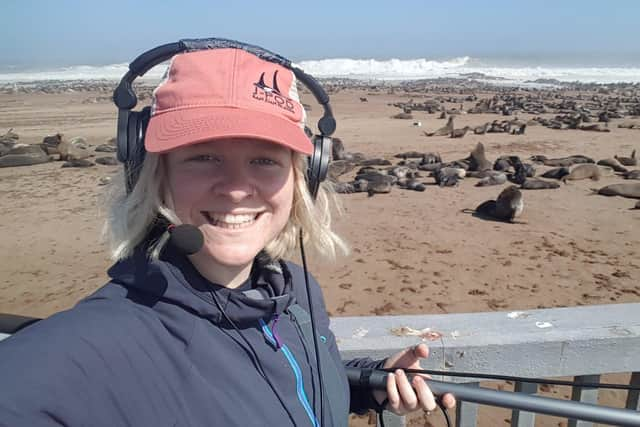Buxton scientist part of ground-breaking new dolphin research project
and live on Freeview channel 276
Emma Longden is part of an an international team of scientists that has succeeded in using the signature whistles of individual bottlenose dolphins to estimate the size of the population and track their movement.
Emma grew up in Buxton and attended Fairfield Infant and Junior school followed by Buxton Community School and then Plymouth University where she obtained a first class degree in marine biology in 2018.
Advertisement
Hide AdAdvertisement
Hide AdSince then, she has divided her time between Buxton and various different countries while working in marine mammal science.


Now, she and her colleagues have published their paper highlighting how individual dolphins produce their own signature whistles – making them easier to track and identify for studying.
Emma said: "Signature whistles are like a dolphin name, each is uniquely identifiable and is developed in their first year of life.
"By detecting signature whistles with hydrophones, we were able to track and count the dolphin population.”
Advertisement
Hide AdEmma presented the findings at the World Marine Mammal Conference in Barcelona last December, thanks to a grant from the Rotary Club of Buxton which enabled her to travel there.
She continued: “I’m incredibly grateful to the Rotary Club of Buxton and also Fairfield Endowed School Trust who have been incredibly generous and provided grants to aid my work and studies.”